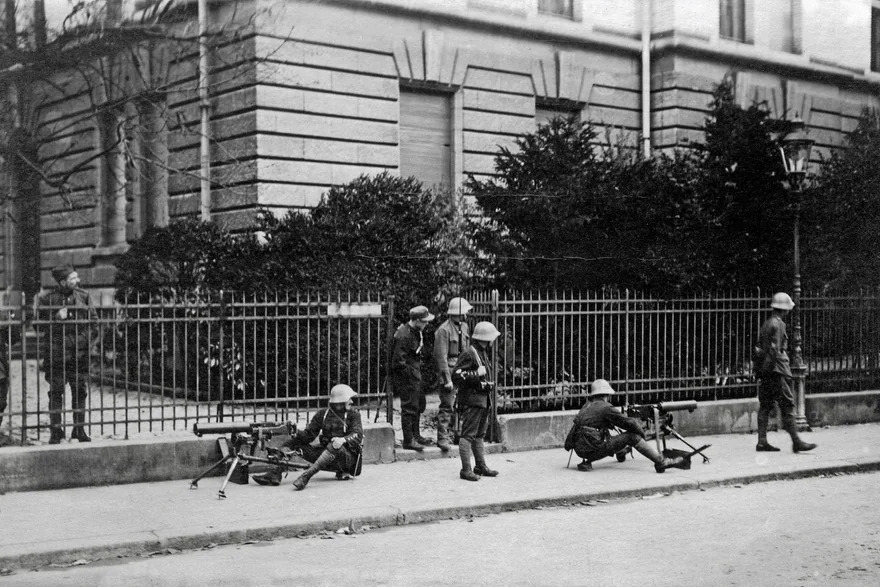Swiss General Strike (1918)
Tue Nov 12, 1918

Image: Machine guns on the streets of Zurich in November 1918. Armed soldiers were positioned all over the city. From Gretler's Panoptikum zur Sozialgeschichte [swissinfo.ch]
On this day in 1918, the Swiss "Landestreik" began, a two day general strike in which 250,000 struck for a variety of social reforms, including a 48 hour week, women's suffrage, disability insurance, and the formation of people's army.
The strike took place in the context of World War I and skyrocketing food prices that left many workers hungry. As bread prices doubled between 1914 and 1918, the average industrial wages sank by a quarter. The wage of conscripted soldiers was also often less the jobs those workers were forced to abandon.
In early November, Zurich's labor movement sought to celebrate the first anniversary of the Russian October Revolution. After news of the German November Revolution and the toppling of the German emperor reached Zurich, the military banned all public demonstrations, dispersing one protest by attacking workers with saber-bearing cavalry.
Following this incident, leaders of the Swiss Socialist Party (SPS), the country's labor unions, and the socialist press, banded together in an alliance called the Olten Action Committee (OAK), issued a proclamation of working class demands and a call for a general strike on November 12th, 1918.
The demands included a 48 hour week, women's suffrage, disability insurance, establishing a state monopoly on foreign trade, new national council elections, and the reorganization of the military into a people's army.
Facing pressure from the government to end the strike and a hostile military, OAK leadership quickly backpedaled and called off the strike just two days later, on November 14th. Despite this, some workers continued to strike for several days afterward.
A military court acted quickly and initiated legal proceedings against 35,000 strikers, and 21 of its leaders were tried for mutiny. In the short term, the strike's failure was a disaster for the labor movement, however many of OAK's demands would later come to fruition - in 1919, the 48 hour week was established for workers.